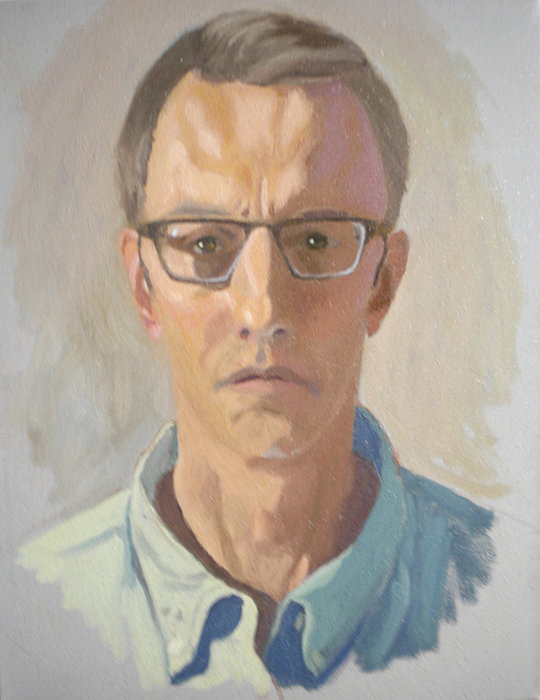Gene Wisniewski has seen the scene before: man wants to impress a date, man wants to take said date to a museum, man has no idea how to talk about art, so he bags the whole idea and sits home watching television.
Wisniewski – a Weehawken resident, artist and art teacher – intends to change all that. In fact, he has been changing that for two years with his two-part, six hour seminar, “Six-Hour Art Major” (geared toward both men and women, by the by). Wisniewski will present a one-hour preview of his seminar on May 20 at Hoboken’s Symposia Books.
“I read this survey once that asked people what they think of when they think of museums, and most of them said ‘church,’” he said. “I don’t like that idea. Anyone can understand art, because everyone has an emotional reaction to it, which is undervalued.”
“Anyone can understand art, because everyone has an emotional reaction to it, which is undervalued.” – Gene Wisniewski
____________
This way, art becomes more accessible, and hopefully more prevalent in modern American culture, Wisniewski believes.
“There was a time when everybody took art class, and now it’s dropped once kids reach the age where their talent can really be developed,” he explained. “It’s a necessary part of our world’s creative dialogue.”
Living the life creative
“I can’t imagine not being a creative person, so it’s hard to explain what it’s like to be an artist because it’s how I am,” Wisniewski said. “If I wasn’t constantly creating things, I would be very unhappy.”
While he took art classes throughout elementary and high school, he chose to attend Rutgers University for theatre (which has helped his seminars, he said, because they are essentially performances). One of his professors suggested he change his major to painting, and upon graduation, Wisniewski followed his advice.
He went on to study art at the New York Academy of Art, the National Academy of Design, New York City’s New School, and L’Ecole Albert Defois in Vihiers, France. His surrealist painting style – particularly with his self portraits – is reminiscent of Austrian painter Egon Schiele with a tad less angst and self-hatred, and his board paintings evoke Matisse in his later collage years, if Matisse had been coached by Salvador Dali.
Wisniewski has taught art for fourteen years in various capacities, so when he met a woman on a jitney to New York City, began to discuss the challenges of making a living as an artist, and she suggested seminars, he took the plunge.
At first, the jitney woman’s suggestion steered Wisniewski toward the business end of things, which, he said, people didn’t find that interesting.
One day while visiting a museum with a friend, Wisniewski began explaining the symbolism of a Franz Hals painting of a farm boy flirting with a milk maid. His friend stopped him suddenly and asked, “Do you realize you have six people standing behind us listening?” Thus his business seminars became art seminars, and Wisniewski began shopping “Six-Hour Art Major” around to colleges, senior centers, and public meeting spaces.
Things just took off.
Art through an artist’s eyes
“The seminar is a lot of fun,” Wisniewski emphasized. “It’s very conversational, hands-on, and alive. It’s not just a big snore of facts and dates, though those are a part of it, too.”
The seminar is broken into two sections. The first, he says, deals primarily with creativity: what it means to be creative, the work habits of creative people, and what goes through artists’ minds, say, when they create an abstract piece of art. He then has students take something they’ve drawn from life and abstract it as a way to turn what could otherwise be largely intangible ideas into a more graspable reality.
The second section deals with art history and appreciation and the business end of things – what is it like to make a living as an artist? Best part is, Wisniewski has lived it, and so is best equipped to teach it. The preview seminar in Hoboken will draw from both sections.
“I want to make art accessible to people,” Wisniewski said. “Art is necessary in the world. Life and art should constantly bounce off each other; otherwise there would be nothing to talk about.”
“What to Look for When You Look at Art” will take place Sunday, May 20 at 5 p.m. at Hoboken’s Symposia Books located at 510 Washington St. For more information on Wisniewski and his work, visit www.genewisniewski.com.
Gennarose Pope may be reached at gpope@hudsonreporter.com
